Choosing the right strapping tool is not a decision to be taken lightly. It’s not just a matter of choosing at random. Each tool has its own specific use, so it’s important to choose the right tool for your needs. Here are a few tips to help you select the perfect strapping tool.

Different strapping tools
The family of strapping tools is full of different options. To find the ideal strapping tool, you first need to take a quick look at what’s available. The main strapping tools include manual or pneumatic tensioners, friction strapping machines and manual crimping pliers. These tools are designed to meet specific strapping needs, whether manual or automated, the materials used and, above all, the size and weight of the loads to be strapped.
a tool for every purpose
Before choosing a strapping tool, it’s crucial to understand its advantages and disadvantages. This understanding will help you select the tool best suited to your activity, your work rate and the type of strap required to strap your merchandise.
Manual strapping tools
The mechanical manual strapping tool, also known as a manual tensioner, is a portable tool used to tension and cut strap manually to the correct tension. To use it, seals or buckles are required to hold the strap in place. For example, basic models such as the RP100 or RP112 are suitable for all types of strap . Other models, such as the RP25, are designed specifically for woven straps such as hotmelt, composite or textile. Similarly, the RP50 and RP55 are compatible with all types of woven and composite straps.
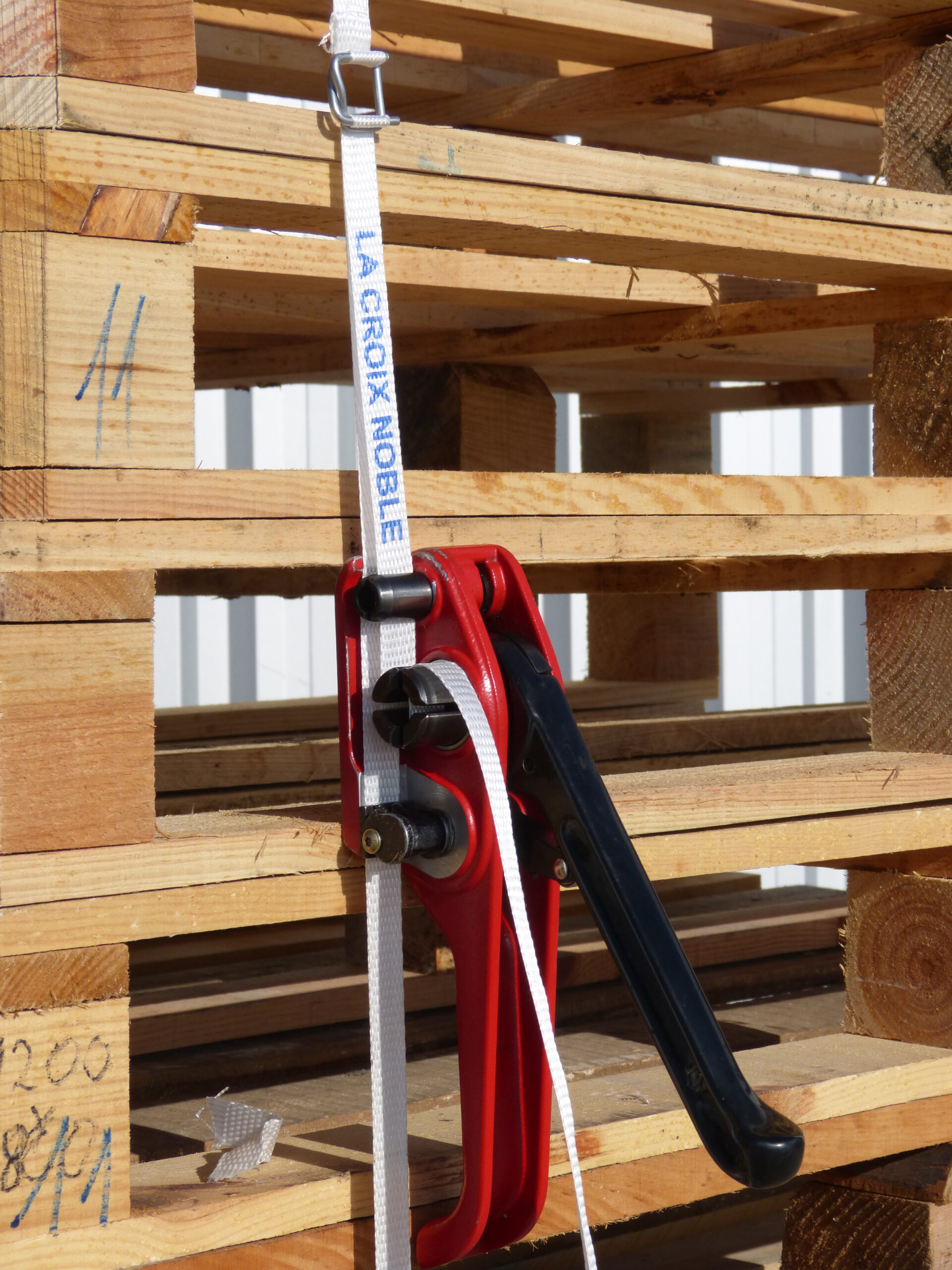
Manual strapping machines are ideal for companies that need a lot of tension in a hostile environment (wood, metal, quarry, etc.). Your choice will also depend on the type of merchandise you’re strapping. If it’s a round package, you’ll need to opt for our RP111 for straps up to 19 mm or the RP55 for wide straps up to 50 mm.
Friction welding machines
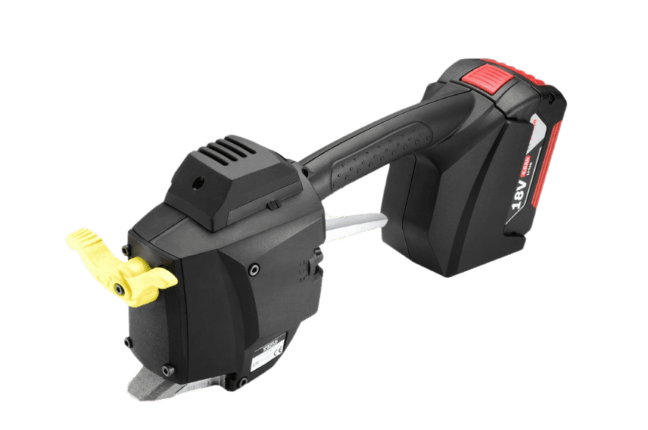
Friction welders are used in conjunction with manual tensioners to avoid the need for seals or buckles for straps. For example, they can be used to replace steel strap with its plastic equivalent, PET strap, which is lighter and safer. The X925F friction welder is available on the market. As they complement a manual strapping machine, the activities to which they correspond are those with a low strapping rate. They save money, because the purchase price is lower than that of a friction strapping machine that combines the two tools. They are used on straps that can melt, such as PP or PET.
Manual friction strapping machines
Also known as electric strapping machines, they tension and weld automatically, eliminating the need for seals or buckles and saving on materials. The strapping remains manual, but the welding is carried out by a thermo-friction mechanism. The aim is to melt the strap in order to weld it, so the material must be plastic such as PP or PET strap. friction strapping machines include the X12 for PP or PET straps 9 to 13 mm wide, the X25 for straps 12 to 16 mm wide, and the X40 for straps 12 to 19 mm wide.
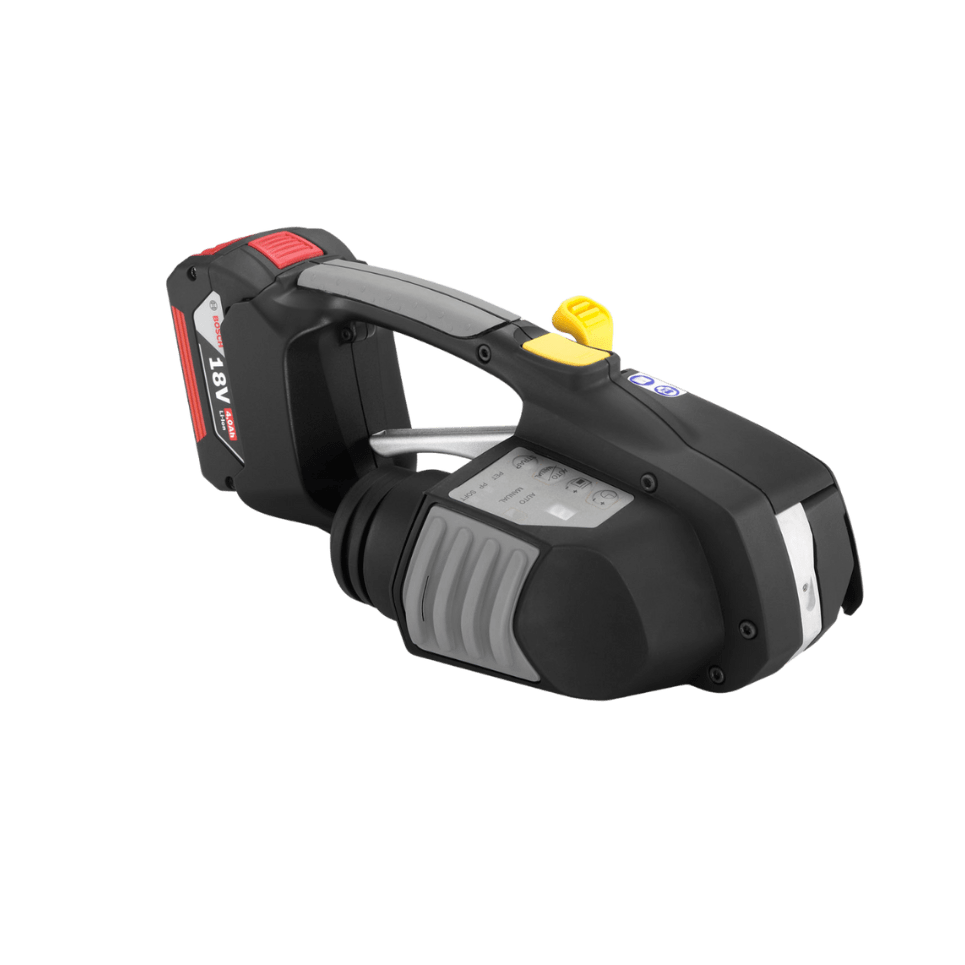
The advantage of the friction strapping machine is that it combines the manual strapping machine with a friction welder, reducing the number of tools on your workbench. They are used by companies with a moderate to high strapping output.
Pneumatic strapping machines and strapping machines for textile straps
The pneumatic strapping machine, which is similar to the mechanical manual strapping machine, has a compressed-air reversing system that provides much greater tensioning force than a conventional manual strapping machine. It is used for more intensive production rates and provides more reliable strapping of textile straps such as composite or woven. The strapping machine for textile straps is adapted for intensive use, and is the equivalent of a friction strapping machine designed for textile straps such as woven, composite or hotmelt. This overcomes the limitations of a conventional friction strapping machine, which can only be used for two types of strap.
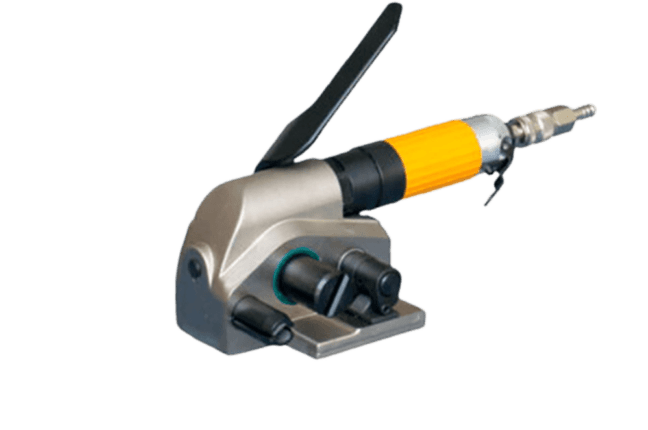
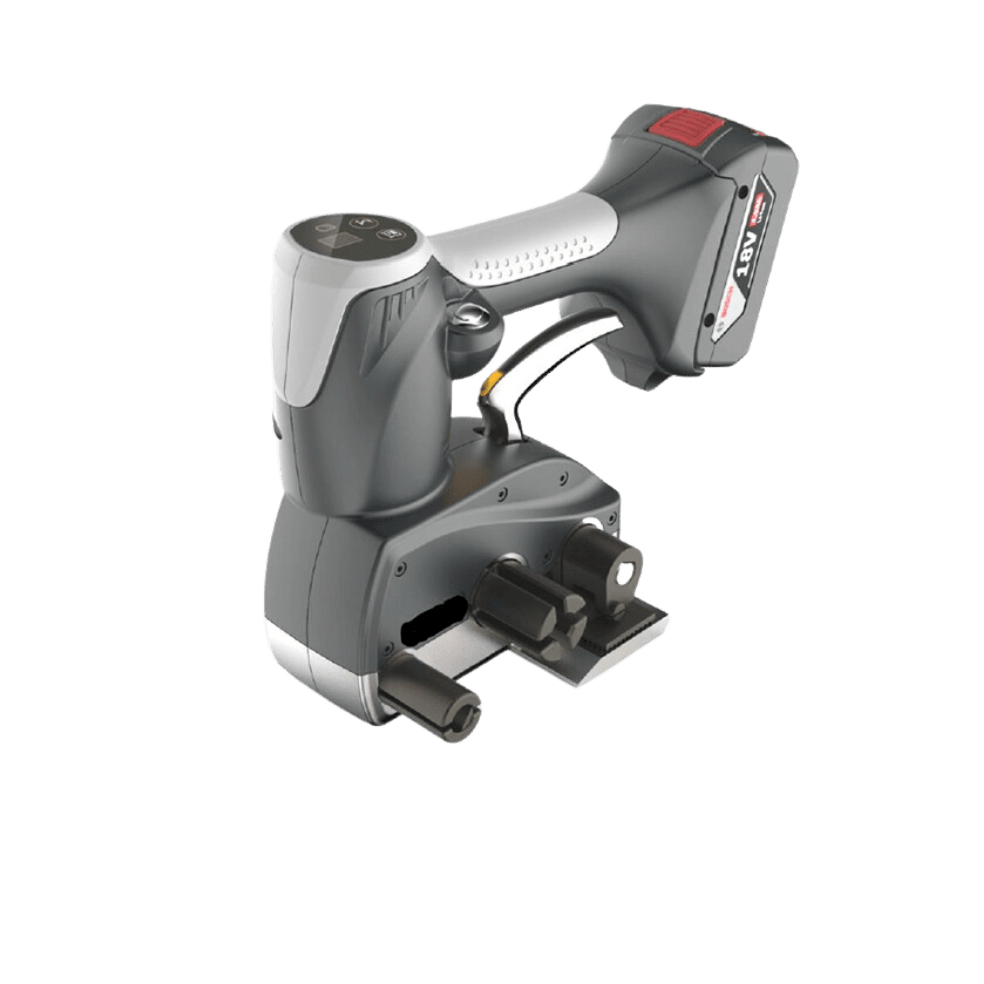
Tensioners and clamps for metal straps
Steel strap is very strong but has the disadvantage of being difficult to handle, so you need equipment adapted to this type of strap to obtain secure strapping.
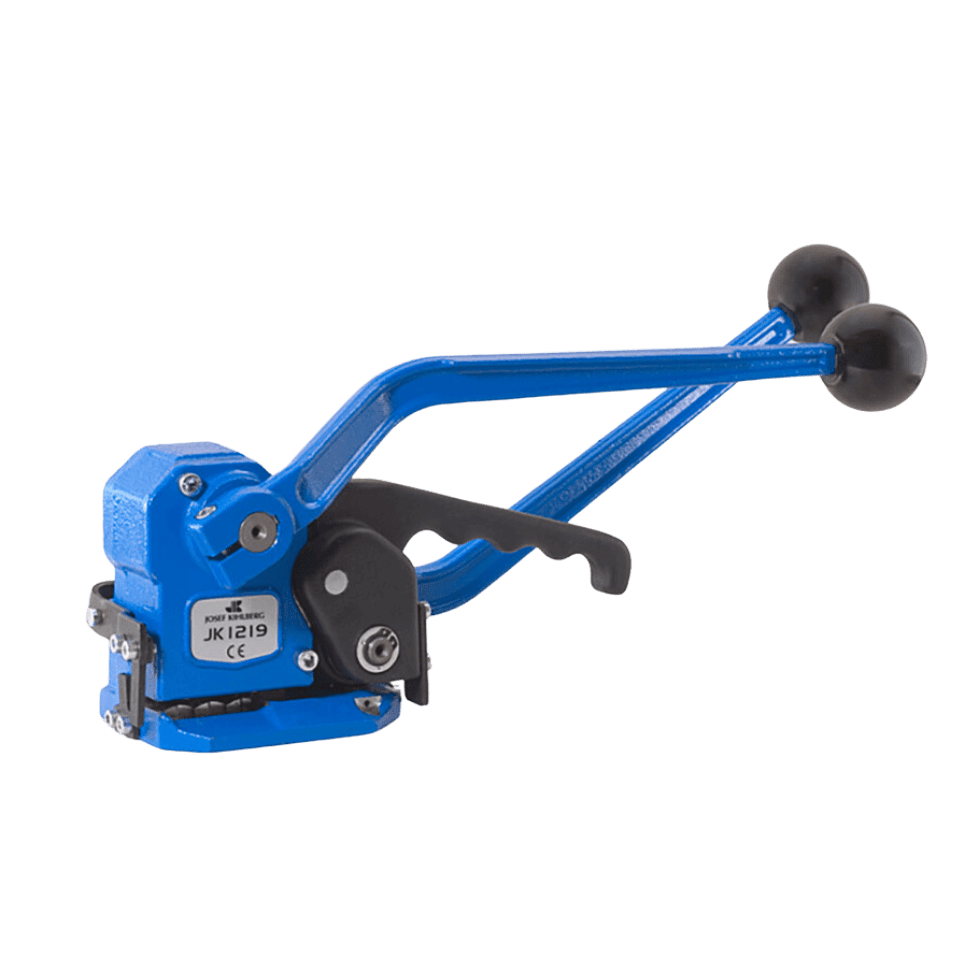
For strapping with steel strap, the basic tools are tensioners such as the 1621, used to tension the strap when strapping flat, and crimping pliers, needed to crimp the seal. The manual crimper-tensioner, on the other hand, can be used for low-intensity production, and is suitable for strapping without a seal. Another option is the manual tool without seal (like the JK1219 ), which offers greater versatility.
It can be used both horizontally and vertically, providing better quality strapping for different strap widths, depending on the model used. What’s more, it eliminates the need to use shears for steel strap, as it is equipped with a knife for cutting the strap.
Shears for steel straps
When using steel strap, it may be necessary to use shears because of their robustness, whether for strapping or for opening merchandise. There are different types of steel shears, each adapted to specific uses. For example, there are the classic shears where you simply adjust the model according to the thickness and width of the strap. There are also anti-release shears , which hold the strap in place while cutting it, ensuring that its tension is maintained. Finally, there are shears with reversible blades, which make it easier to cut the strap with less effort.
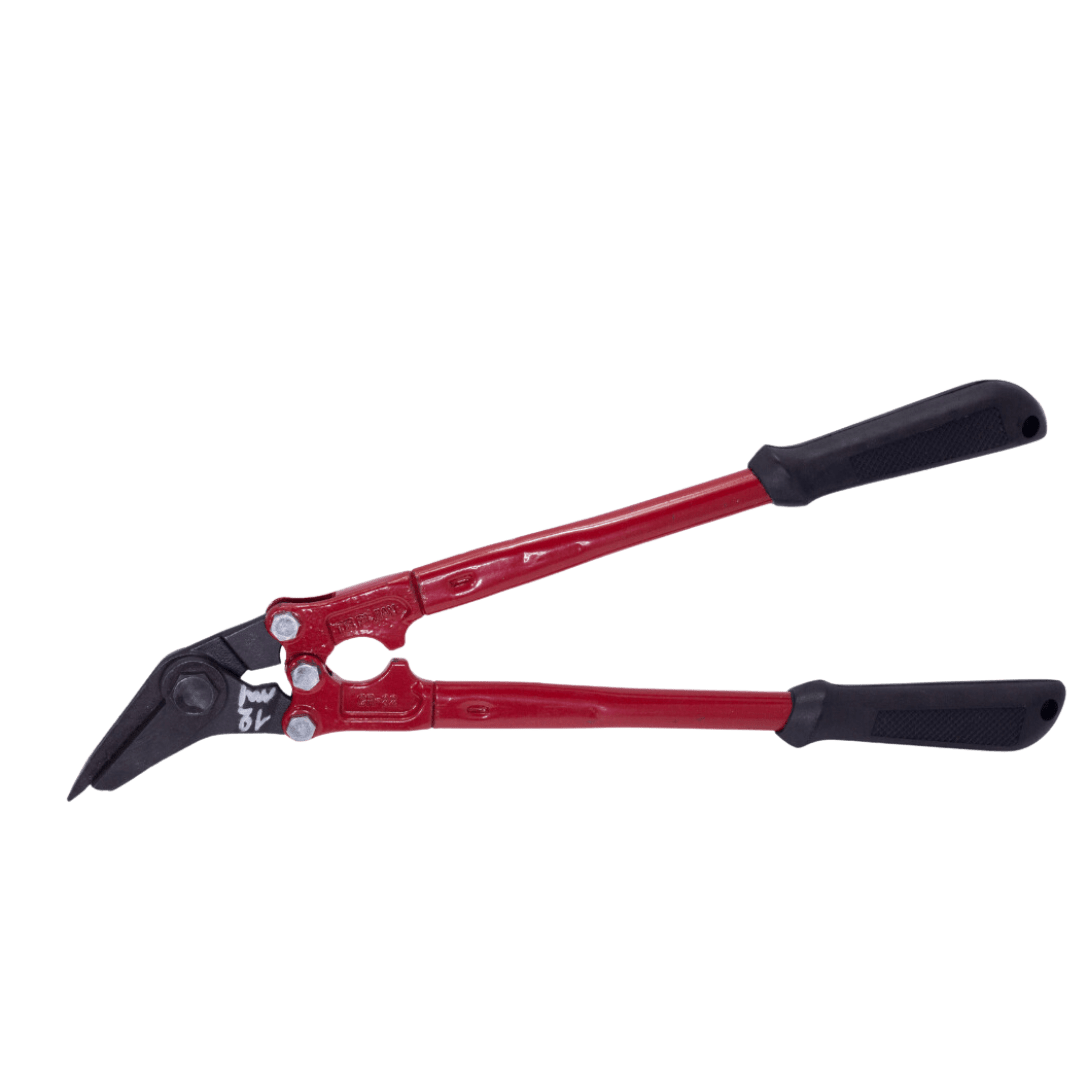
Adapting to the size of the merchandise
The size and weight of the merchandise to be strapped are the final criteria to be taken into account when choosing your strapping tool. To guide you, here’s a comparison table showing the properties of the different types of strap, which will help you choose the right strapping tool.
| Type of industry | Recommended strap | Type of strapping | Pallet weight | Strap width |
|---|---|---|---|---|
| Wood pallet | Hotmelt Composite Woven PET PP | Manual strapping tools Friction strapping machines Pneumatic strapping machines | 400 kg 600 kg 1000 kg | 13 mm 16 mm 19 mm |
| Metal pallet | Composite Woven PET | Manual strapping tools Friction strapping machines Pneumatic strapping machines | 400 kg 600 kg 1000 kg | 13 mm 16 mm 19 mm |
| Stone/concrete pallet (Materials) | Composite Woven PET | Manual strapping tools Friction strapping machines Pneumatic strapping machines | 400 kg 600 kg 1000 kg | 16 mm 16 mm 19 mm |
| Cardboard pallet | PET PP | Friction strapping machines | 300 kg 600 kg 800 kg | 13 mm 16 mm 19 mm |
| Logistics | Paper PET PP | Friction strapping machines | coils < 20 kg 300 kg 600 kg 800 kg | 12 mm paper 13 mm 16 mm 19 mm |
As you can see, there are many advantages to choosing the right strapping tool for your needs. By choosing the right tool, you can improve the efficiency of your strapping operations, reduce the risk of injuries such as MSDs (musculoskeletal disorders) and product damage, and minimise the costs associated with material consumption and working time.
Now you have all the information you need to make the right choice for your business and your needs. If you have any doubts, don’t hesitate to contact us. We’ll be happy to help you make the right choice.
